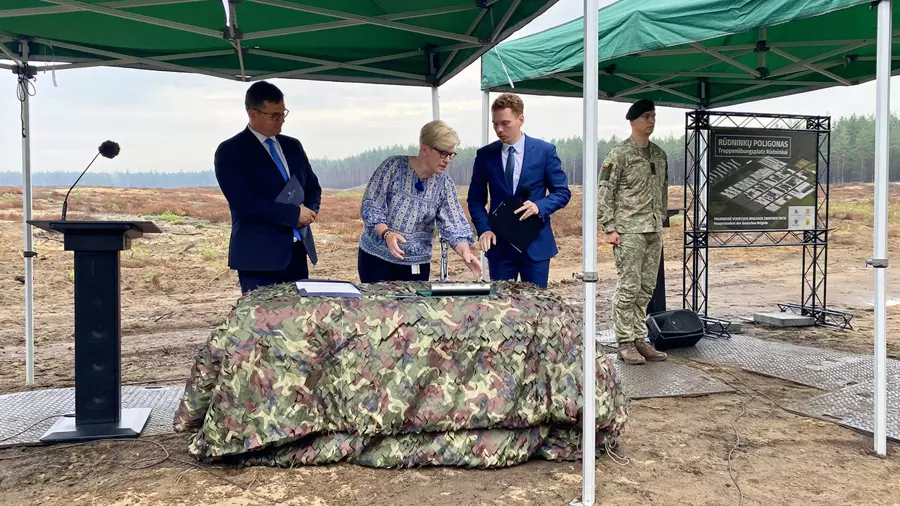Lithuania is currently constructing a new military base situated between Russia’s Kaliningrad and Belarus, as announced by the nation’s Defense Ministry in Vilnius. This development marks a significant move for the region, with the facility expected to house German troops upon its completion. The planned garrison will be located approximately 20km (12 miles) from the Belarusian border and near the Russian exclave of Kaliningrad.
The decision to build the base was agreed upon during a meeting between German Defense Minister Boris Pistorius and his Lithuanian counterpart, Arvydas Anusauskas, in December 2023. This plan represents the first permanent deployment of German troops on foreign soil since the end of World War II.
When completed, the base will house a contingent of 4,800 combat-ready troops and 200 civilian specialists, along with heavy armaments and support infrastructure. The unit, known as the heavy 42nd Armored Brigade, will consist of three combat battalions – two of which will be German-only (an armored battalion and a heavy infantry battalion) and one multinational battalion.
In regards to the future deployment, Pistorius emphasized that it would allow Germany to “assume leadership responsibility” within NATO. The Lithuanian Defense Ministry described the project as a means of strengthening regional security and reaffirming its commitment to NATO collective defense. Raimundas Vaiksnoras, Lithuania’s chief of defense, highlighted that the German brigade would serve both as reassurance for their population and as deterrence against Russian aggression.
However, this development comes with a considerable financial burden for Lithuania, which has to invest more than €1 billion ($1.10 billion) over the next three years to fully develop the base. This substantial investment is noteworthy given that the nation’s population stands at 2.9 million people. To cover these increased expenditures, Lithuania has raised its defense spending to 3% of GDP this year, with the government opting for tax hikes as a means of financing the higher outlays.
It is worth mentioning that Germany currently leads a multinational NATO advance force stationed in Lithuania – further illustrating the growing importance of the Baltic region within the alliance’s strategic objectives. This new military base signifies an increased commitment to regional security and collective defense by both Lithuania and Germany, as well as a potential escalation of tensions between NATO and Russia. Moscow has consistently expressed its concerns regarding the bloc’s military buildup along its borders, which it views as a direct threat to its national security. As such, Russia is expected to counter this development in a manner that aligns with its perceived best interests.

